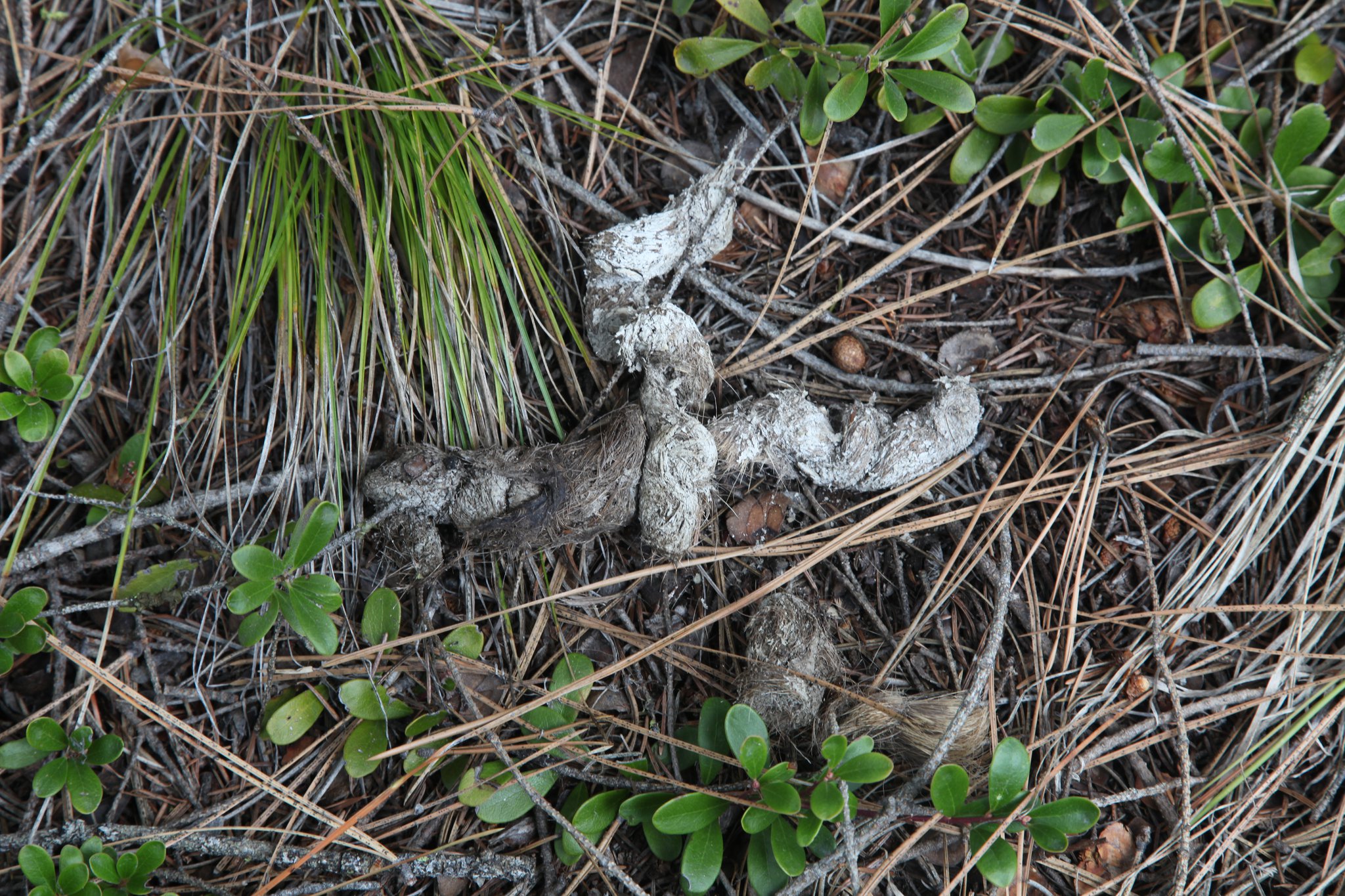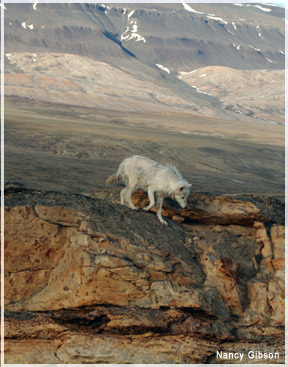Regardless of what a researcher wants to learn about wolves, they must decide what process they would like to use. Prominent wolf biologist, Dr. Dave Mech, suggests classifying research processes into three, general categories:
- Investigational - Study wolves to answer a question.
- Hypothesis-testing - Study wolves to test a hypothesis.

Study: Analyze wolf scats. (You can learn a lot from scat!)
- Opportunistic - Study wolves to see what new information one can learn.

A researcher may choose to include more than one type in their project or create a hybridized method to suit their needs.
Once a research method is developed, researchers must implement the project. Varying techniques to gather data about wolves are used and are typically dictated by the information the researcher hopes to gather.
For example, a researcher wanting to compare how much wolves weigh in the Canada versus those in Russia would likely analyze existing data rather than trying to weigh wolves from both countries independently.
Keep in mind, the methods used may change over time as the researcher progresses in finding answers to questions he or she has.
Perhaps the researcher studying wolf weights only has 80 sample weights from Canada but needs 20 more. Live trapping and weighing 20 wolves may be added to the project in order to obtain 20 more data points.
Additionally, as technology advances, the tools available for research change thus changing the process for collecting data or conducting research.
For example, with the availability of molecular genetic analysis, wolf researchers are now able to include molecular genetic analysis as a tool for wolf research.